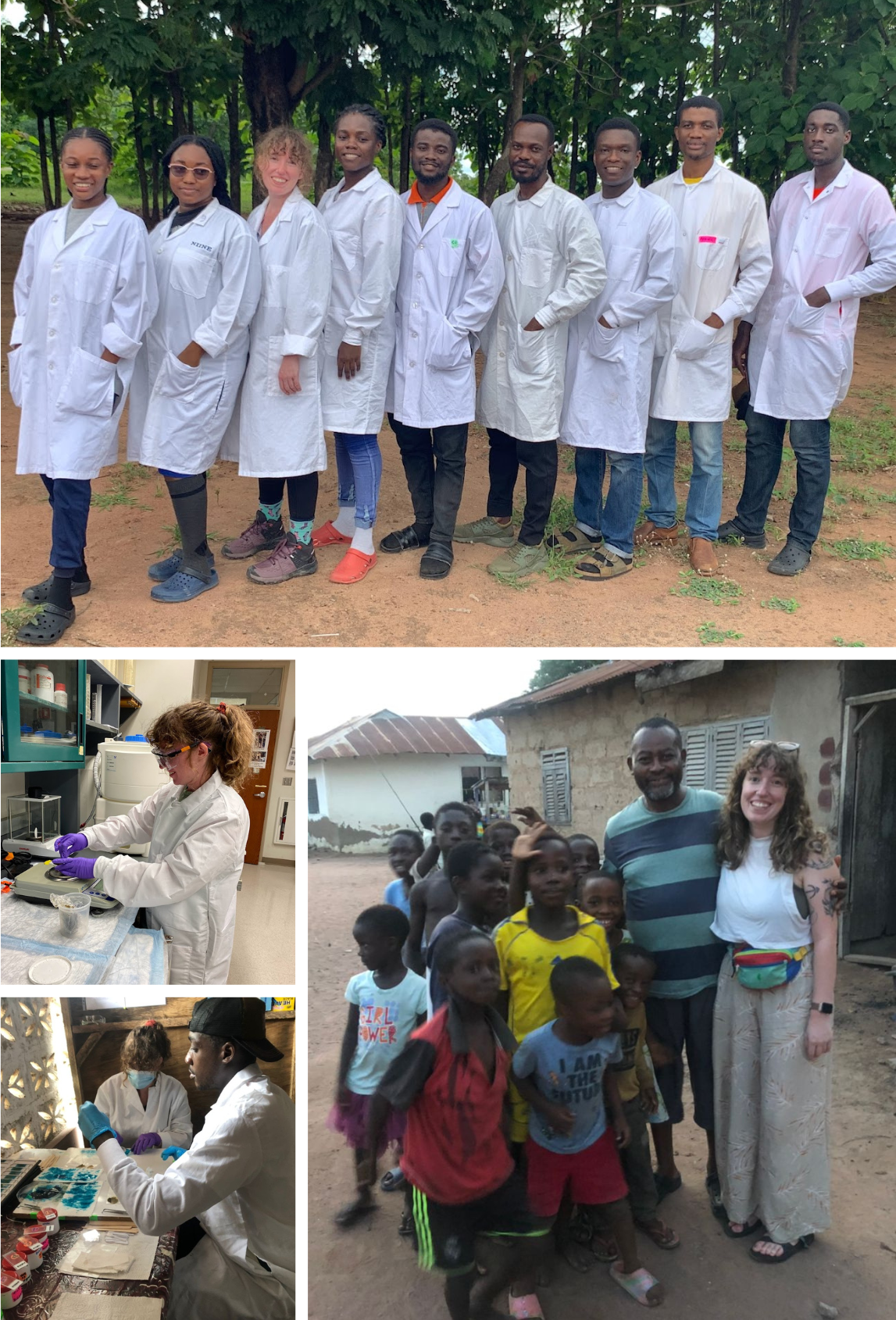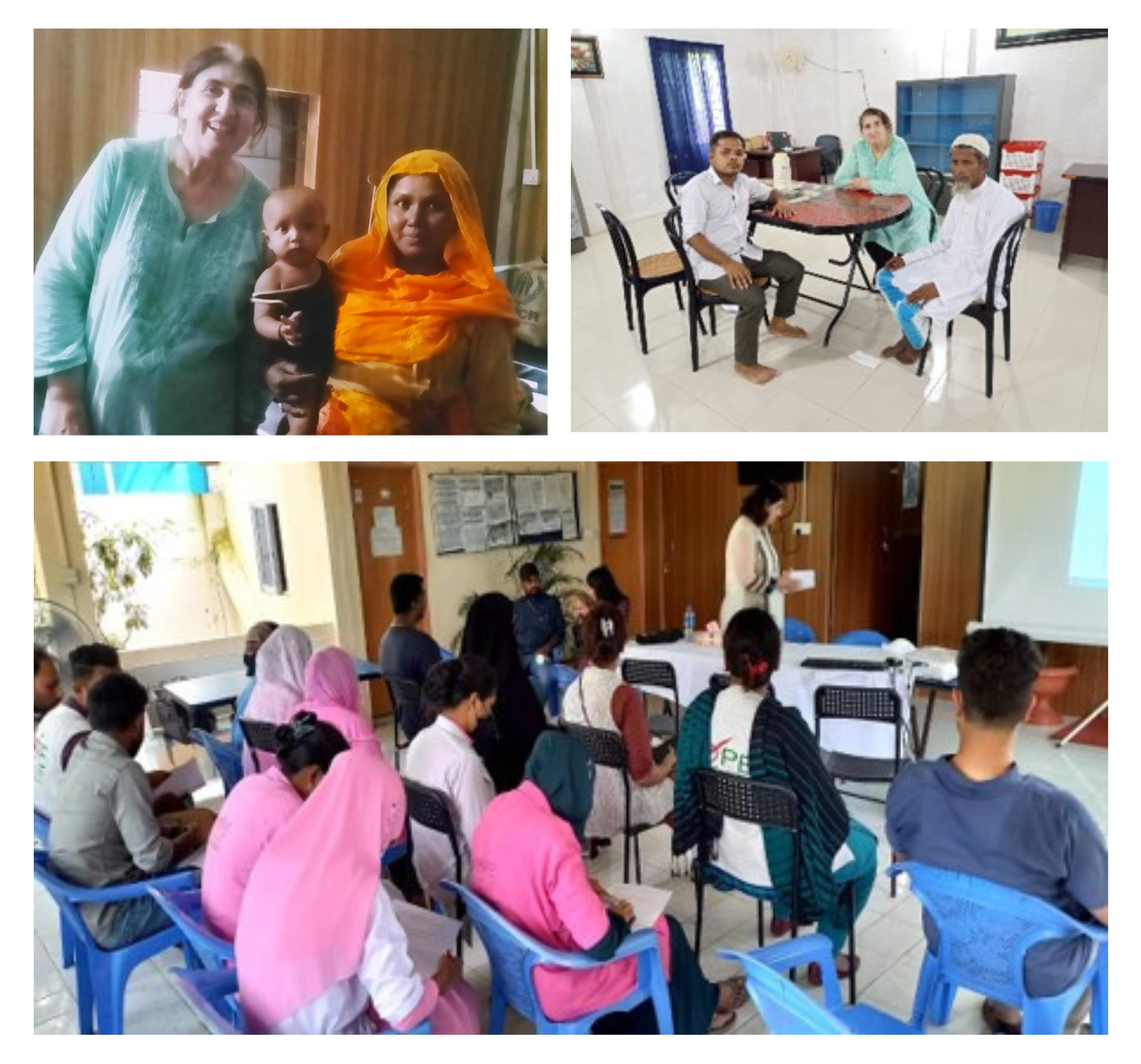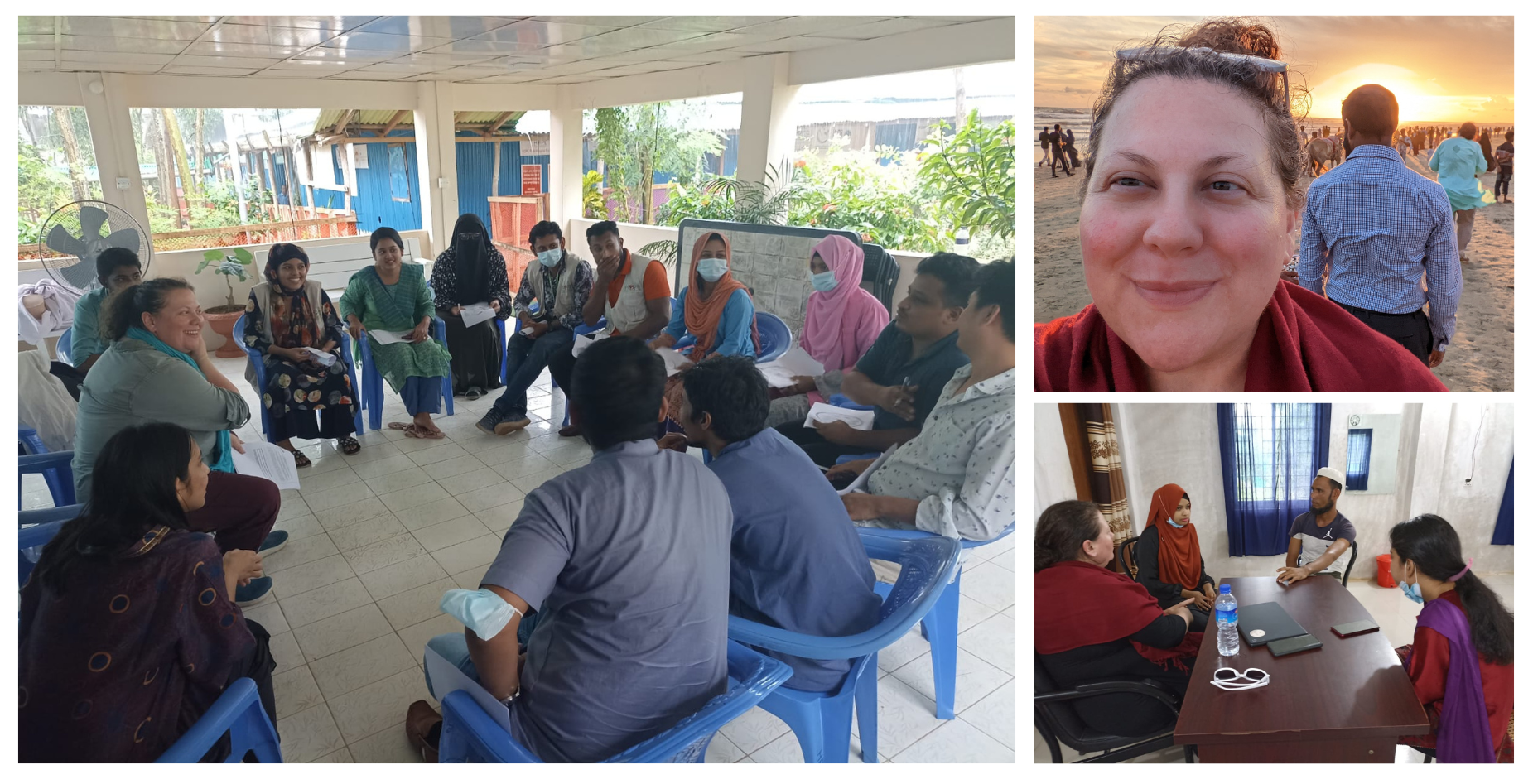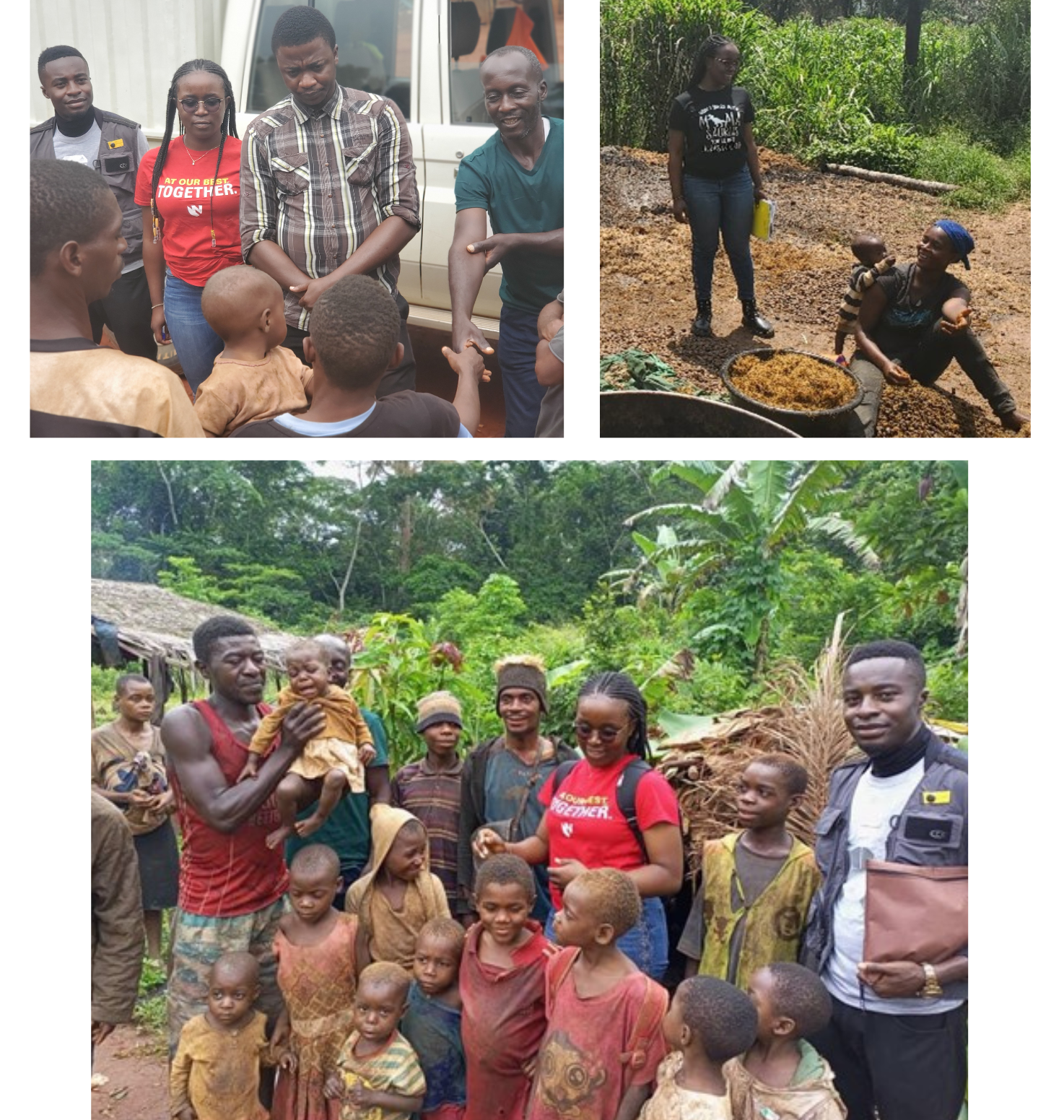Taylor Clarkson, Chambers Fellow, 2023

From Taylor Clarkson, MPH student, "The Chambers Global Health Fellowship allowed me the unique opportunity to experience hands-on global health research and epidemiological fieldwork. My time in Ghana was absolutely incredible, I learned so much, had so much fun, and was able to explore what conducting global infectious disease research was like. I’m truly grateful for the opportunity to explore my passion, and the experience allowed me to confirm that global health research is where I’d like my future career to take me".
Vicki Doss, Chambers Fellow, 2022

Vickie Doss was able to travel to Bangladesh in the summer of 2022 as part of the Suanne and Ward Chambers Summer Global Health Student Fellowship. There Vickie worked at the largest refugee camp in the world, where she looked at prenatal care and antenatal visits during pregnancy.
"I worked at the Hope Foundation for Women and Children of Bangladesh in Cox's Bazar. The refugee camp is the world's largest refugee camp, with over 900,000. I focused on a prospective cohort research study, "Predicting Apgar Score Outcomes with Midwife Prenatal Care Among Infants Born to Rohingya Refugees in Cox's Bazar."
I also did interventions of antenatal nutrition, and education of the midwives, along with compliance education and deep dive interviews of the Rohingya women, community leaders, senior managers, and physicians of the Field Hospital's Antenatal Care Clinic to increase the number of antenatal visits during pregnancy.
Working with the Rohingya refugees in Cox's Bazar, Bangladesh, at the HOPE Foundation for Women in Children, for the Suzanne and Ward Chambers Global Health Fellowship was an academic, professional, and personal life experience that has enhanced my feeling of accomplishment in helping a marginalized community."
Julie Lubisi, Chambers Fellow, 2022

Julie Lubisi, a 2nd year PhD student, was able to travel to Bangladesh in the summer of 2022 as part of the Suanne and Ward Chambers Summer Global Health Student Fellowship. Julie worked with the Hope Foundation to assess its gender-based violence screening and referral process.
“Through the generous support of the Chamber’s Fellowship, I was able to travel to Cox’s Bazar, Bangladesh to conduct a participatory evaluation study in collaboration with the Hope Foundation for Women and Children of Bangladesh which provides 24/7 care for the Rohingya living in the largest refugee camp in the world.
Along with the Hope team, I conducted semi-structured interviews and focus groups to assess the implementation of the gender-based violence (GBV) screening and referral process. GBV is a critical global health issue, and Hope is committed to addressing it among the Rohingya.
Additionally, I had the opportunity to visit with community leaders from the Rohingya community, enjoy Bangladeshi hospitality and delicious cuisine, and relax on the Kolatoli Beach with a cup of tea.”
Nancy Tahmo, Chambers Fellow, 2022

Nancy Tahmo, a 2nd year MPH student in the Epidemiology Department, traveled to Cameroon in the summer of 2022 as part of the Suzanne and Ward Chambers Summer Global Health Fellowship. With the Emerging Threats Epidemiology Group (ETEG), Nancy collaborated with the Center for Research in Infectious Diseases (CRID) to convene stakeholders in the five rainforest regions, including tribal chiefs, social mobilizers, local health districts, national research centers, and the National Zoonoses Program and One Health Cameroon.
"Spending a month on the road visiting these different and unique communities was very humbling. I worked with a diverse team, including an epidemiologist, social scientists, interpreters, community mobilizers, and entomologists. We explored, through a semi-structured qualitative approach, the cultural/economic/social contexts of the communities, probed on risky health practices, symptoms they experienced, health-seeking behaviors, and the perceived influence of the changing demographics (influx of refugees, internally displaced persons, foresters, and miners) on their health landscape. We also mapped out and met with key stakeholders across the nation, including policymakers, sentinel/active surveillance coordinators and implementers, emergency preparedness/response actors, and national zoonoses databases."
This qualitative work allowed her team to contextual preliminary findings from a systematic review they have completed of emerging and re-emerging zoonotic diseases in Cameroon. Their work is especially relevant as it combines published data in research articles, reported data in national databases, and actual community experience with zoonotic diseases. The project will help strengthen these communities' health systems through fostering interactions, research capacity, promoting health behavior initiatives, and national/international partnerships to address the challenge of zoonotic diseases.

